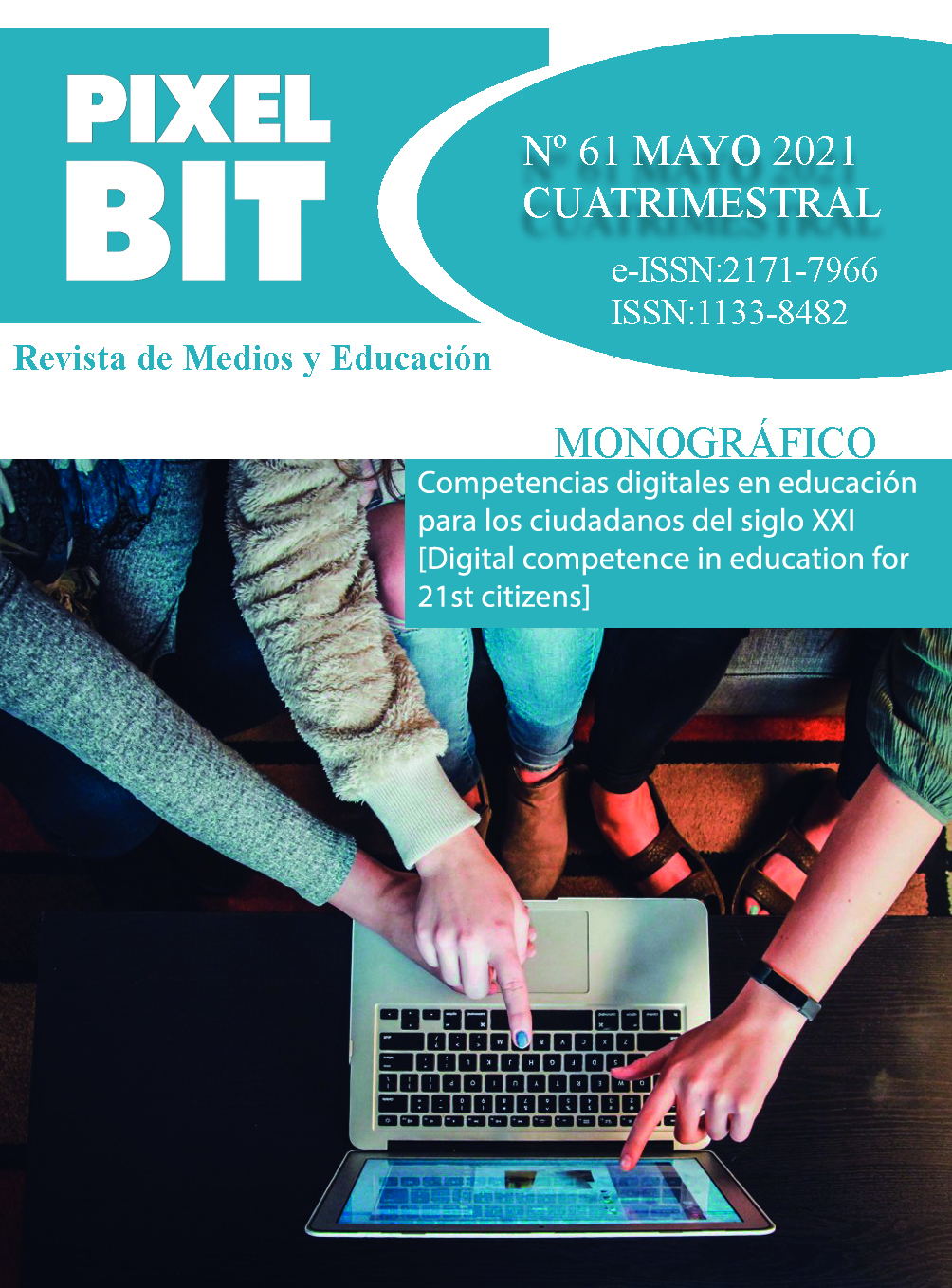Abstract
Based on the theoretical framework of the DigCompEdu this article analyses the digital skills that teachers put into practice when using mobile devices in university classrooms in innovative educational experiences. To achieve this goal a mixed investigation was designed in which two data collection techniques were used. In addition, three discussion groups were developed in several Spanish universities aimed at understanding what meanings teachers attributed to the type of skills that were being put into practice in the development of innovative educational processes in which mobile devices were being used. This article presents the results of a questionnaire in which a sample of 155 teachers from different Spanish universities participated. All the teachers involved had participated in teaching innovation processes with mobile devices. The results suggest that university teachers possess digital skills that enable them to use mobile devices for the selection of digital resources. The participating teachers suggest that, beyond the devices used, the innovative nature of the experiences is related to the way in which these are involved in projects designed for innovation and improvement, taking full advantage of their potential for communication and access to information.

This work is licensed under a Creative Commons Attribution-NonCommercial-NoDerivatives 4.0 International License.
Copyright (c) 2021 Pixel-Bit. Media and Education Journal

